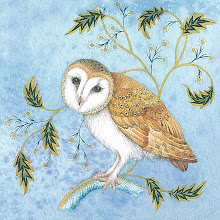
As I switched on the radio this morning I heard more gloomy news about our loosing battle with climate change and preserving the planet. My usual response to such reports is to sink into a deep melancholy but instead I decided to do something positive about one environmental issue that has concerned me for some time, and that is the plight of our bumblebees, so today I joined the Bumblebee Conservation Trust and I would urge you to do the same.
I am sure that by now we are all aware of the importance of bees, not only as pollinators of our wild plants and garden plants but as pollinators of many important food crops. If you care nothing about our countryside (and I am sure you do) then consider these words by Albert Einstein “If the bee disappeared off the surface of the globe, then man would only have four years left to live.''
The trust works in many ways, by raising awareness about the important role we can all make to help our native bees. I know that many of my dear fellow bloggers are keen gardeners so maybe you would like to help by planting more bee friendly plants this year? If we all planted just one extra species this year in our gardens I am sure it would be beneficial. If you are a lazy gardener like me you might want to try white dead nettle – so called because it has no sting! It looks very pretty with its white flowers and variegated leaves and provides good ground cover which helps prevent weeds.
The website has a wealth of fascinating information for gardeners, here is a little taster-
“Exotic or highly cultivated garden flowers are largely unsuitable, as they either produce little pollen and nectar, or keep it hidden away from the bees. In particular, most annual bedding plants (e.g. Pelargonium, Begonia, Busy Lizzies) have little nectar to offer bees or other wildlife. Instead, why not try growing traditional cottage garden flowers and native wildflowers. Many of these thrive and look superb in the garden. They are also easy to grow, generally being hardy and much more resistant to slugs and disease.”
So, instead of feeling depressed about the state of the world, perhaps you might also like to give the trust your support by doing a link on your blog? The more we help bees the more work the bees can do to help preserve our native plants which support many other life forms including our own. Please feel free to use my bee graphic on your blog to help the cause of bees worldwide.





